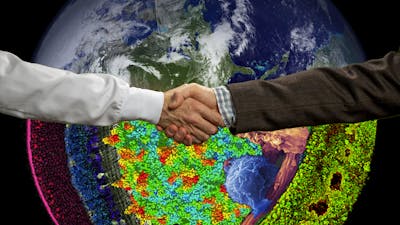Northpond Labs, the research and development-focused affiliate of Northpond Ventures, and Harvard University have announced the formation of a research alliance agreement dedicated to advancing innovations with strong translational potential to improve medical care. Northpond Labs will provide $21.5 million in funding for research across Harvard’s labs at the Wyss Institute for Biologically Inspired Engineering, Harvard Medical School (HMS), John A. Paulson School of Engineering and Applied Sciences (SEAS), and Faculty of Arts and Sciences (FAS).
This expanded collaboration builds on the successful, innovative alliance established in 2020 between Northpond Labs and the Wyss, which resulted in the creation of the Lab for Bioengineering Research and Innovation at the Wyss Institute. Through this initial alliance, Harvard, the Wyss, and Northpond Labs forged an effective academic-industry collaboration that enabled technologies to advance and leave the Lab. Projects at the Wyss Institute addressing challenges in synthetic biology, cell therapy, drug discovery, and protein engineering received critical financial support from Northpond Labs to progress towards validation of the technologies and, ultimately, venture creation. Notably, the Controlled Enzymatic RNA Synthesis project led to the founding of EnPlusOne Biosciences, a startup focused on sustainable RNA synthesis for therapeutic applications. Leveraging the success and momentum created by the initial Wyss-Northpond relationship, the new alliance represents a significant expansion in scope and depth of involvement from labs at the Wyss and across HMS, FAS, and SEAS that are making strides in this space, thereby accelerating the translation of research across the University with a pathway to commercialization.
A significant portion of the new funding will be allocated to the Lab for Bioengineering Research and Innovation at the Wyss Institute, supporting scientists at the Wyss Institute and across Harvard’s schools, including HMS, FAS, and SEAS.
We have been impressed by the collaborative and solutions-oriented approach to research at the Wyss Institute, and by the depth and breadth of innovations that it has generated.
The Laboratory for Bioengineering Research and Innovation has supported the following projects toward commercialization:
2021 – Controlled Enzymatic RNA Synthesis
This technology leverages a new enzyme-based method of generating synthetic RNA oligonucleotides to manufacture RNA therapeutics, drug delivery vehicles, and genome engineering tools at scale and more sustainably. The novel synthesis approach was created in the Wyss Institute’s Synthetic Biology Platform and received two years of support as part of the Validation Project program. The startup EnPlusOne Biosciences launched from the Wyss to commercialize this technology in 2022.
2022 – SomaCode
Created in the lab of George Church, SomaCode aims to solve a major challenge in the field of cell therapy: delivering cells to their targets in the body. To do that, it identifies unique molecular “zip codes” that are displayed on the surfaces of diseased cells and engineers therapeutic cells to home to those zip codes, making cell therapies safer and more effective. This project received two years of support through the Validation Project program and is currently being de-risked.
2023 – Lab-on-a-Molecule
The Lab-on-a-Molecule team, led by Wesley Wong, is using DNA nanoswitch technology to develop an in vitro high-throughput platform that can identify compounds that bind to target proteins and change their interactions with other proteins. This approach has the potential to dramatically increase the pace of drug discovery. The technology was named a Validation Project in 2022.

2024 – AminoX
The AminoX team, formed from researchers in the labs of George Church and Jim Collins, is developing a new way to incorporate non-standard amino acids into protein drugs. Their method can be performed at room temperature without expensive equipment, allowing drug developers to rapidly create and test new protein drugs with novel properties and reducing potential off-target side effects. This technology was named a Validation Project in 2023.
This strategic alliance embodies a new mechanism for supporting innovation and providing opportunities to empower entrepreneurial teams to translate their discoveries into commercial opportunities. It also provides an exciting blueprint for future collaborations with the investment, corporate, and philanthropic communities, with strong focus on collaboratively developing technologies and business models that will lead to important solutions to pressing environmental and healthcare problems.
